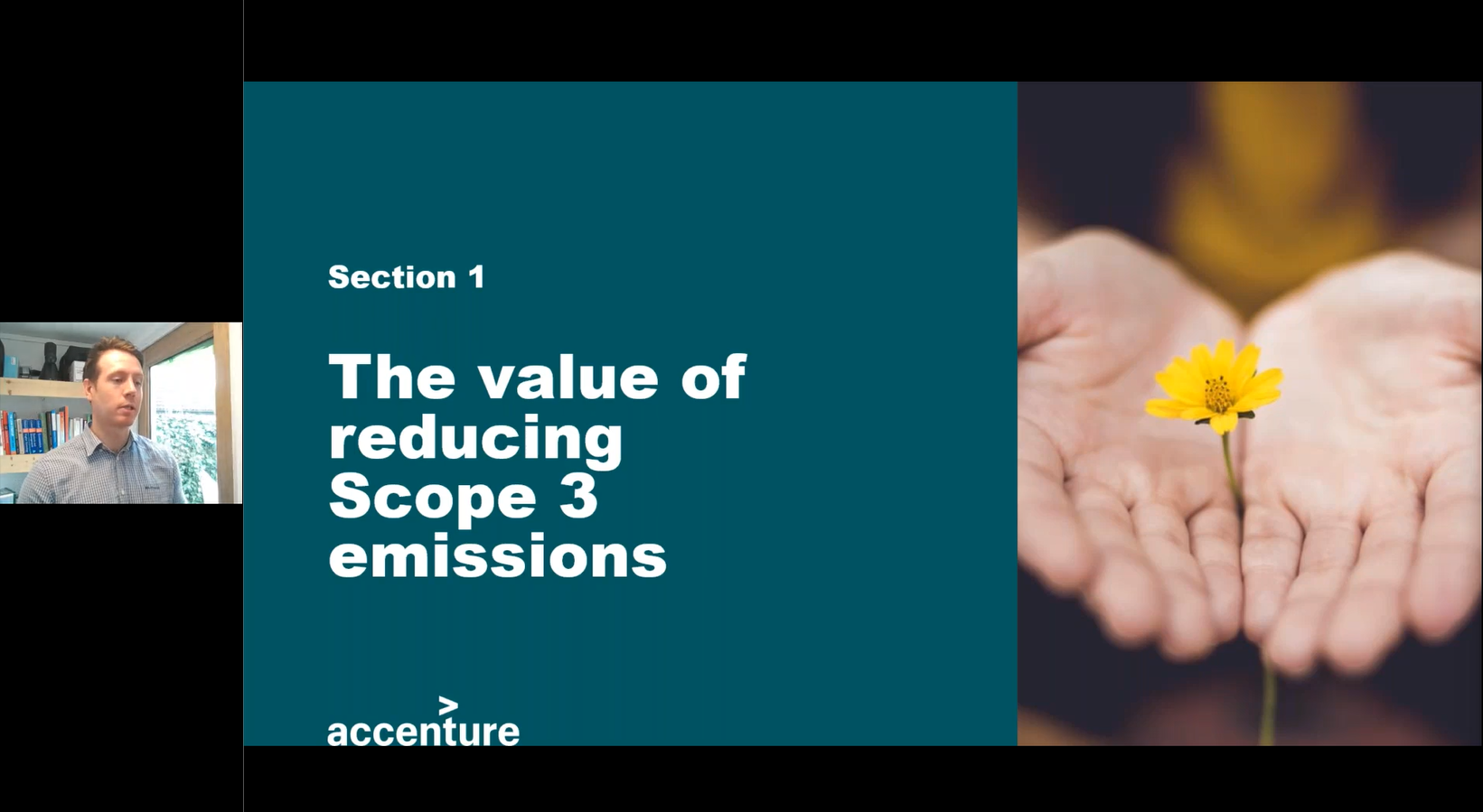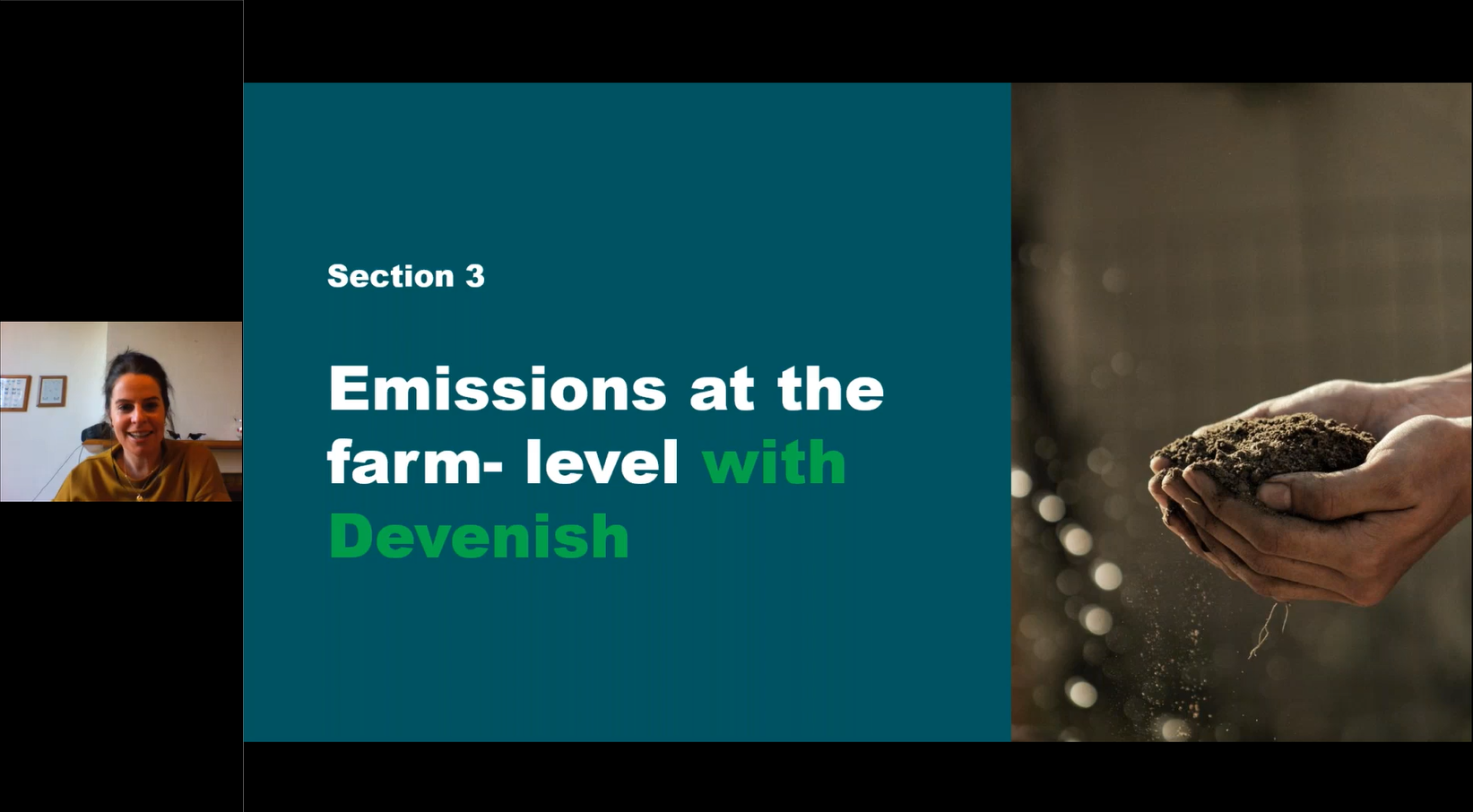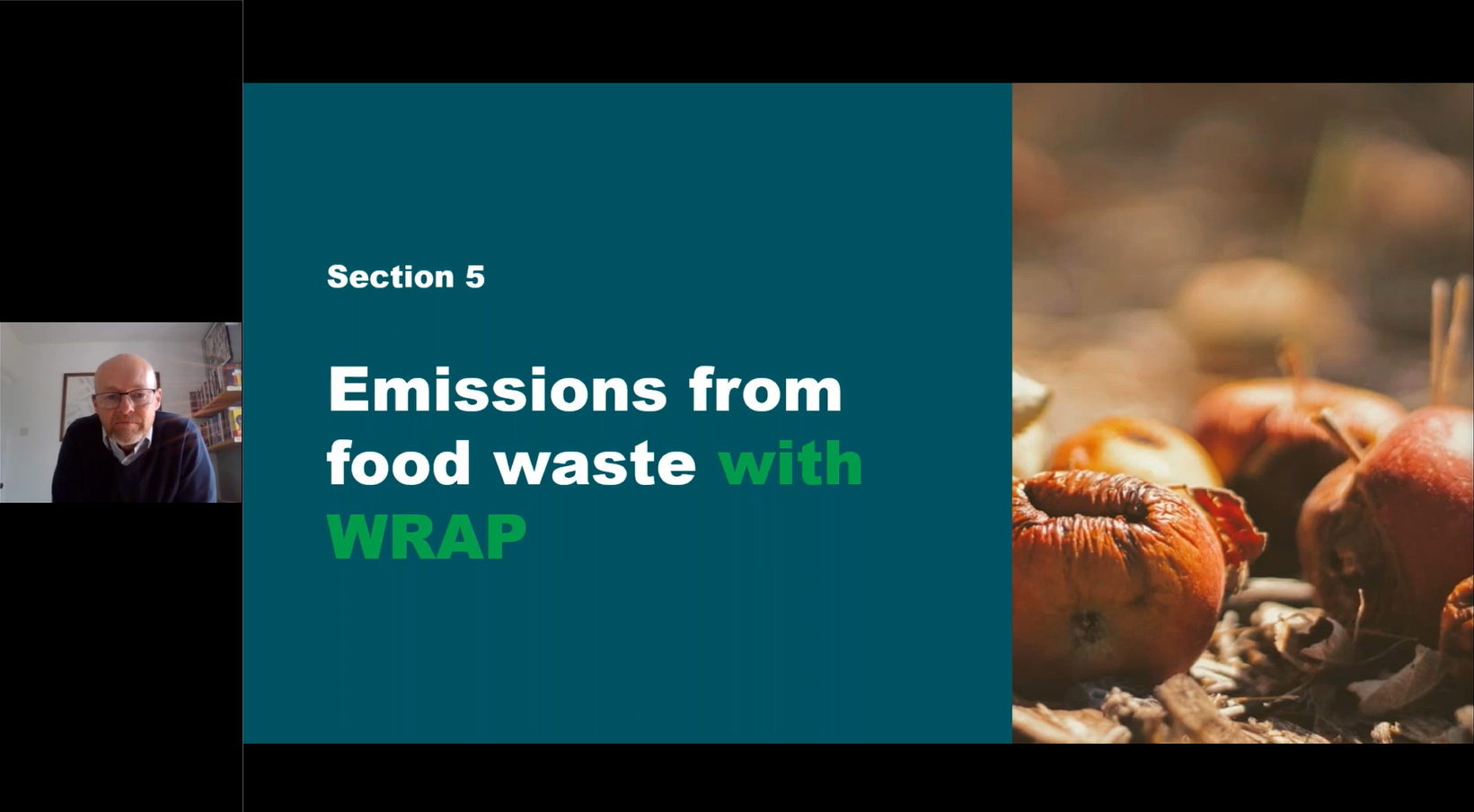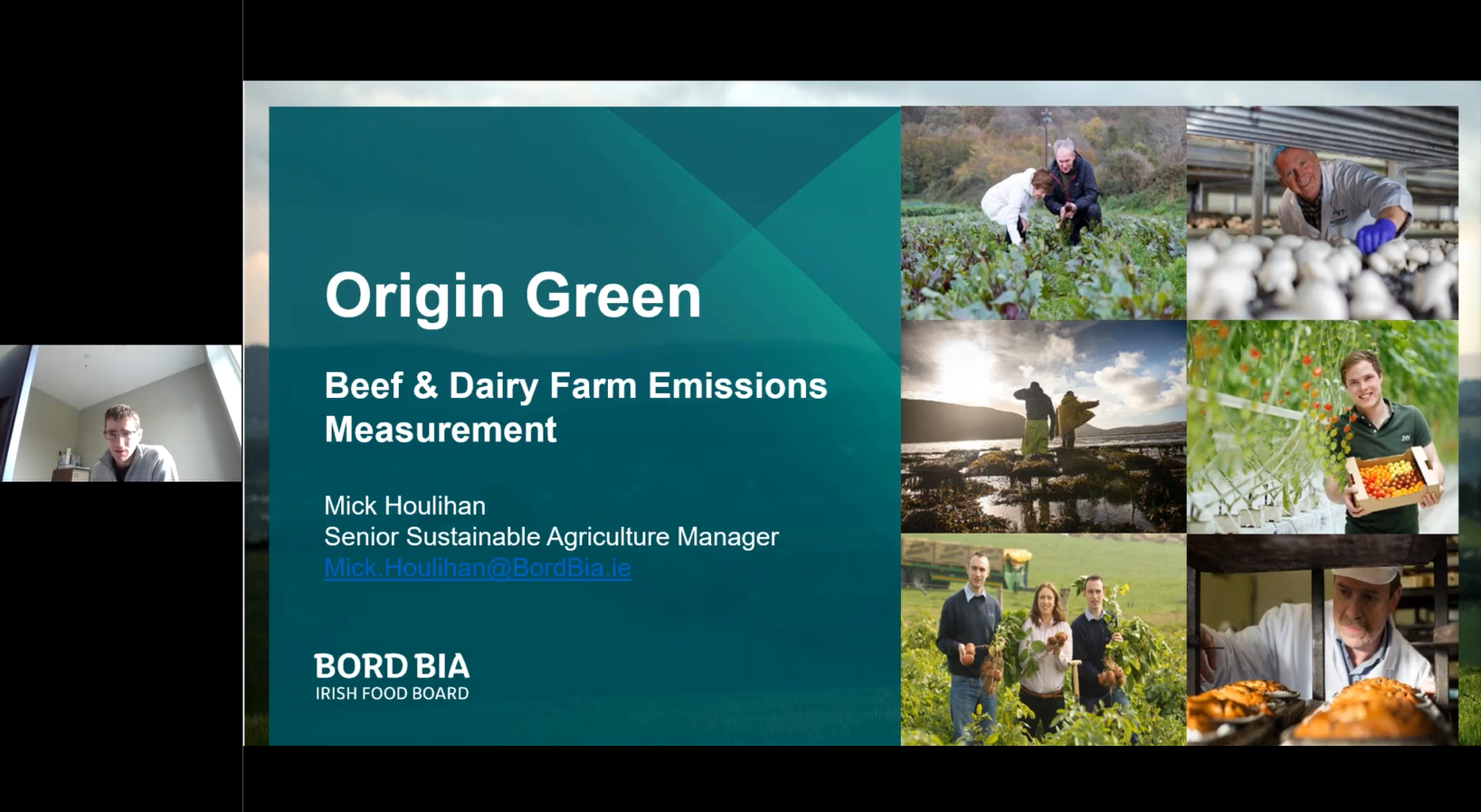

SBTs – Session 4
Session 4 in Origin Green’s SBT Learning Series delved into the world of Scope 3. Given Scope 3 emissions make up as much as 95% of Food, Beverage and Horticulture companies’ emissions profile, reducing Scope 3 emissions is essential to deliver on a SBT. However, as emphasised by Director of Origin Green, Deirdre Ryan, Scope 3 reduction is complex and requires a transparent, collaborative approach to emissions reduction: you must enable your suppliers, employees, consumers etc. to reduce their emissions footprint to make progress on Scope 3 reduction. Indeed, in a recent report, Accenture recognises the importance of engaging the supply chain to drive climate action and resilience.

Adrian Wain, Accenture’s Carbon Intelligence Expert, re-joined us to kick-off Session 4. Adrian took us through the value in reducing Scope 3, as well as the key levers to decarbonise Scope 3 emissions: decarbonising sourcing, products and services, and logistics.

Roberta McDonald, Sustainability Solutions Lead at Devenish, then delved into agricultural emissions. Through insightful case studies on the Lands at Dowth, Roberta brought to life a variety of decarbonisation levers at the farm-level (e.g., accelerating carbon sequestration through correcting soil pH, and the environmental benefits of enabling multispecies swards). Learn more about Devenish and the important work they do here!

Adrian then explored ways to catalyse Scope 3 reduction and the various tools to engage stakeholders, particularly suppliers. Additionally, Adrian explained the ways in which you can embed Scope 3 reduction in your business (e.g., investment strategies and procurement policies).

We were then joined by Peter Worsey, Food & Drink Sector Specialist at WRAP, to talk about tackling food waste, as it is such a large greenhouse gas emitter. Peter, joined by his colleague and GHG specialist, Sophie Harrison, explored the environmental impact of food waste and the actions you can take to reduce it, in turn reducing your Scope 3 (embodied) emissions. Join the effort to reduce food waste! Learn more about WRAP’s Roadmap here.

Mick Houlihan, Senior Sustainable Agriculture Manager at Bord Bia, then took us through the tools and support available to reduce Scope 3 emissions from sourcing. Mick gave an insightful overview of the support Bord Bia offers to enable decarbonisation at the farm-level. Learn more here.
